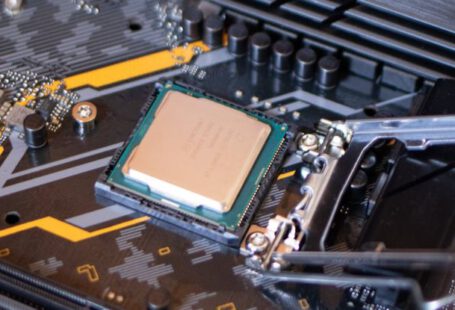A Crucial Element in Maximizing Performance: Why Is Cooling Important for PC Performance?
In the realm of technology, the importance of cooling systems for electronic devices, especially for computers, cannot be overstated. The performance and longevity of a PC are significantly influenced by its ability to maintain optimal operating temperatures. When it comes to pushing the boundaries of computing power and ensuring smooth operations, proper cooling is a crucial factor that directly impacts the overall performance and lifespan of a computer system.
The Role of Cooling in Preventing Overheating
One of the primary reasons why cooling is essential for PC performance is to prevent overheating. As a computer processes data and runs applications, it generates heat as a byproduct of its operations. Without adequate cooling mechanisms in place, this heat can accumulate within the system, leading to thermal throttling, reduced performance, and potential hardware damage.
Overheating can cause components such as the CPU and GPU to operate at higher temperatures than they are designed to handle, resulting in decreased efficiency and stability. In extreme cases, prolonged exposure to high temperatures can lead to hardware failure, rendering the entire system inoperable. By maintaining optimal temperatures through effective cooling solutions, users can avoid these detrimental consequences and ensure that their PC operates at peak performance levels.
Enhancing System Stability and Reliability
Another crucial aspect of cooling in PC performance is its role in enhancing system stability and reliability. Fluctuations in temperature can impact the overall functionality of a computer, leading to system crashes, freezes, and unexpected shutdowns. These issues not only disrupt workflow but can also result in data loss and software corruption.
By implementing efficient cooling solutions, such as air or liquid cooling systems, users can create a stable thermal environment within their PC that allows for consistent and reliable performance. Cooler temperatures help to prevent the occurrence of thermal-induced errors and instabilities, ensuring that the system operates smoothly under varying workloads and conditions.
Improving Component Longevity and Performance
Effective cooling not only safeguards the immediate performance of a PC but also plays a vital role in prolonging the lifespan of its components. Excessive heat can accelerate the degradation of hardware components, leading to reduced longevity and performance over time. Components that are subjected to high temperatures regularly are more prone to wear and tear, which can impact their operational efficiency and lifespan.
By maintaining optimal operating temperatures through efficient cooling solutions, users can extend the longevity of their hardware components and preserve their performance capabilities. Cooler temperatures help to mitigate the effects of thermal stress on components, allowing them to operate within their specified temperature ranges and ensuring their longevity and reliability.
Maximizing Overclocking Potential
For users who seek to push their PC’s performance to the limits through overclocking, effective cooling is essential to achieving stable and sustainable results. Overclocking refers to the process of running hardware components at speeds higher than their factory-set specifications to achieve increased performance levels.
When components are overclocked, they generate more heat than usual, making efficient cooling even more critical to prevent overheating and maintain system stability. By investing in high-quality cooling solutions, overclockers can create an optimal thermal environment that enables them to push their hardware to higher clock speeds while ensuring that temperatures remain within safe limits.
Conclusion: The Crucial Role of Cooling in PC Performance
In conclusion, cooling is a fundamental element in maximizing the performance, stability, and longevity of a PC. By preventing overheating, enhancing system stability, improving component longevity, and enabling overclocking capabilities, effective cooling solutions play a vital role in ensuring that a computer operates at its best. Investing in quality cooling mechanisms is not only a means of optimizing performance but also a way to protect the valuable hardware components within a computer system. Whether for casual users or enthusiasts seeking peak performance, proper cooling is an indispensable aspect of PC maintenance and performance optimization.





